

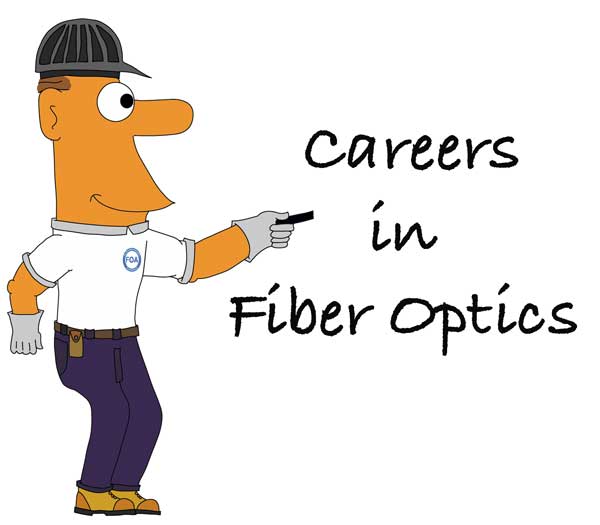
Lennie Lightwave talks about careers in fiber optics.
This
page is for those considering a career in fiber optics - especially
students at the High School Level - and want to know more about what
fiber optic workers do on the job and how to get into the field. Have
you seen the FOA YouTube Video "Careers In Fiber Optics?"
If you are already involved in fiber optics and want help in finding a job, you should go to the FOA jobs page.
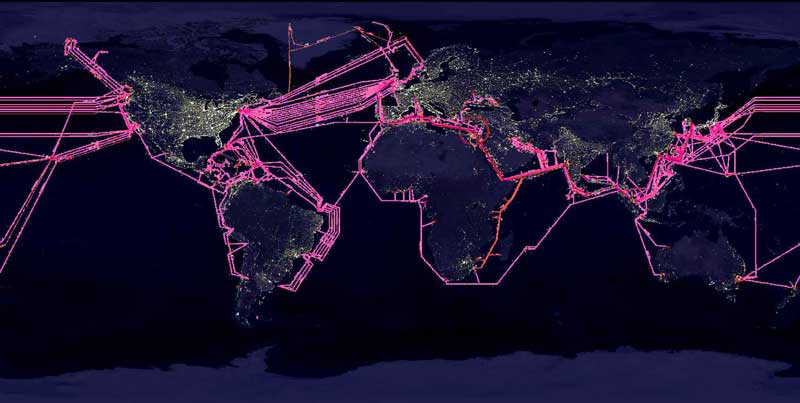
Fiber optics is the backbone of all of today's communications systems. The world is connected on submarine fiber optic cables that carry all of today's Internet data and phone conversations and even much of our video entertainment.
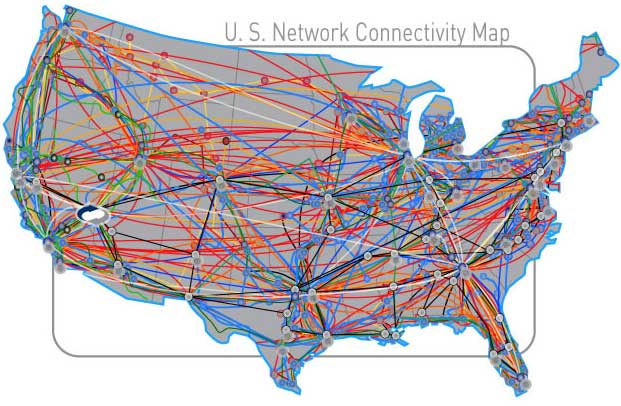
If we look closer, you can see how those cables connect to more fiber optic cables that carry communications to almost every area of America. If we looked closer we'd find how close they come to every person in the country. Fiber optics is how all your communications services are provided locally - phone (both wireless and wired), Internet and even cable TV.
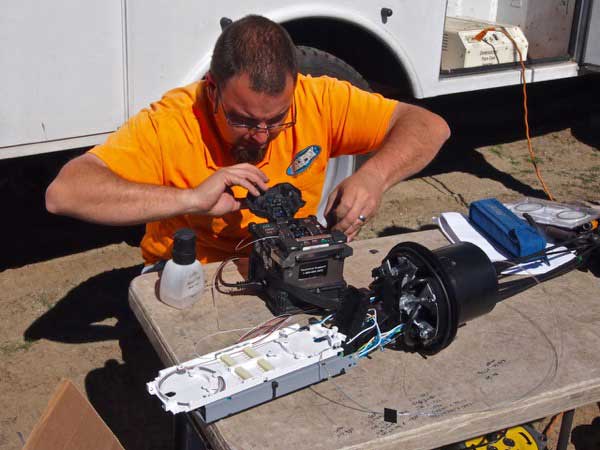
The design, installation and operation of these systems is done by trained skilled workers who make good salaries and get to work in interesting places - outdoors and indoors - places like these.
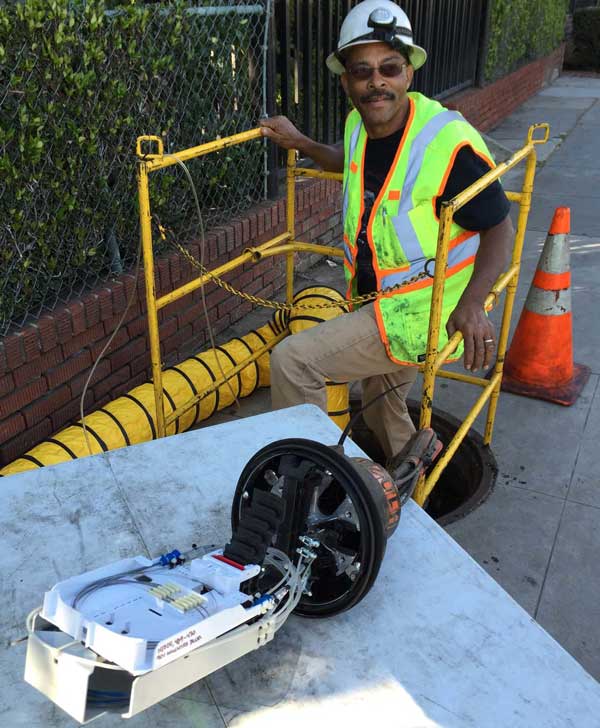
Under the streets of a major city.
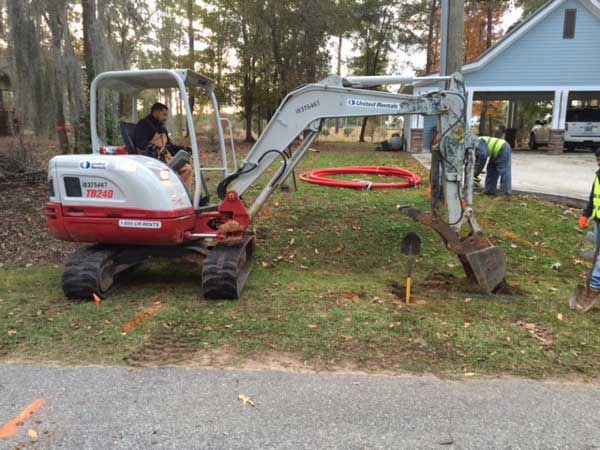
Installing fiber to a home in rural areas.

Or inside a giant Google data center where the data on the Internet is stored. Data centers connect servers on fiber optics and may have hundreds of thousands of connections.
You can work just about anywhere from rural areas to big cities, outdoors or indoors in big or small office buildings, on the ground or in the air (if you're not afraid of heights!)
You might work for a telephone company, an Internet service provider, a CATV company, an independent contractor, or even the military.
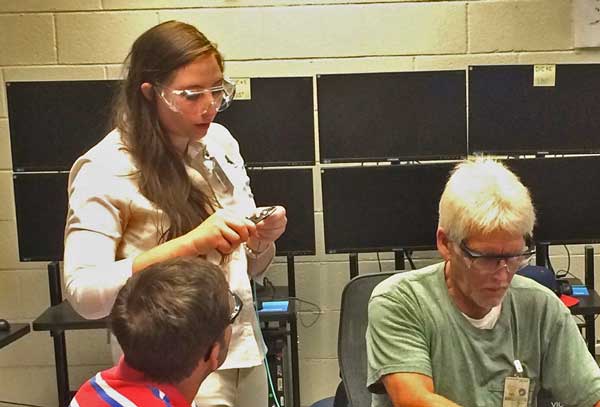
And there is always a need for teachers to train newcomers to the business as this teacher is doing here in the classroom. Women are still a small percentage of workers in fiber optics but organizations like the FOA are encouraging more women to join the field.
How Much Does A Fiber Optic Tech Make?
Fiber optic jobs are paid pretty well, depending on their experience and where in the US they work. The map below, from a US Department of Labor, Bureau of Labor Statistics web page of data on "line installers" which includes fiber optics, shows the distribution of wages in the US. This map includes all telecom line installers which includes both copper and fiber, but it gives good relative data to where wages are higher and lower.
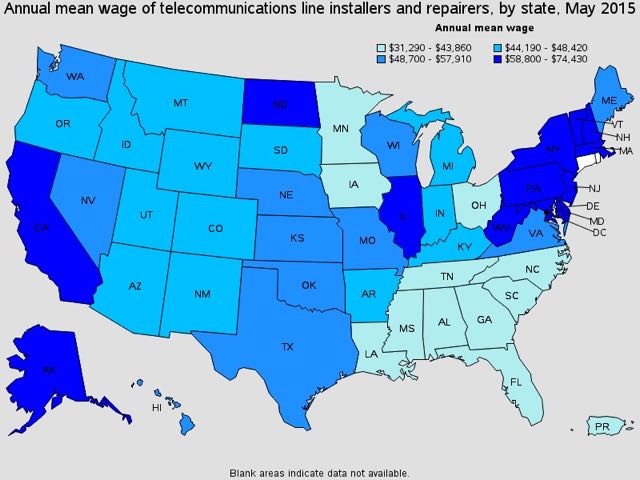
Is This A Career For You?
Do you have good manual skills? Do you like to work with tools and build things? Are you curious about how things work?
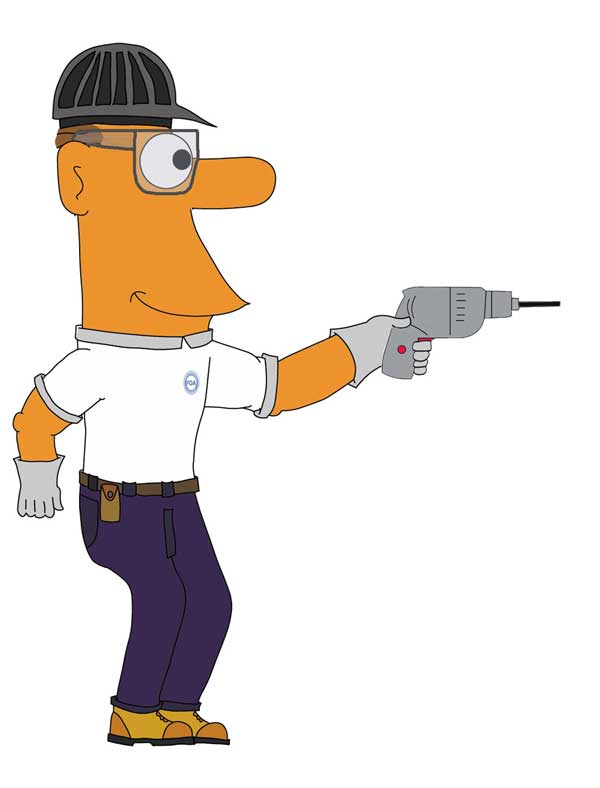
Do you like to work with computers and electronic gadgets and enjoy all types of technology? Do you know basic business programs like word processing, spreadsheets and drawing programs? Have you tried online courses to learn new things?
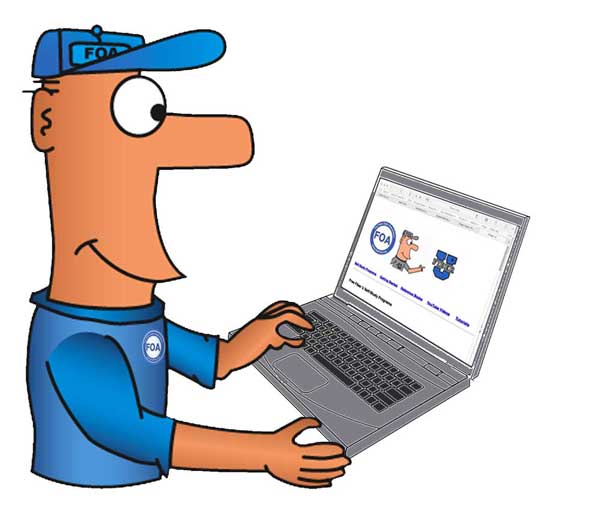
Here's a big one - do you like to work with others on a team to get things done? Can you follow directions carefully and finish your projects on your own and on schedule?
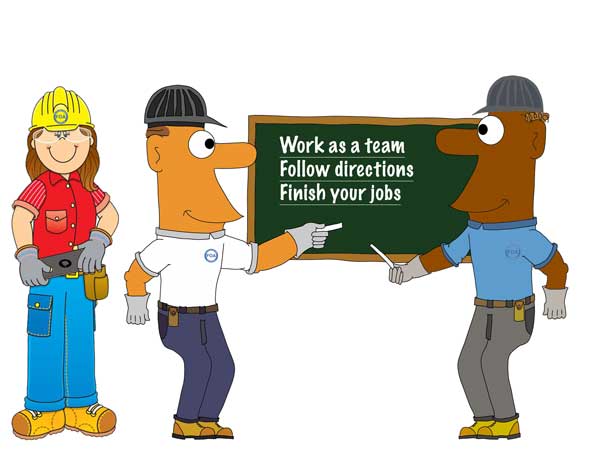
Employers want you to have basic skills and knowledge which you can learn on your own or while working with them - they call that "OJT" for "on the job training." But they also need "soft skills" - basic math and English, the ability to take direction and work on your own - even simple things like being at work on time every day because others on your team will depend on you and your getting your job done.
Sound interesting? How do you get started?

You don't need a college degree but you need to finish high school and get your diploma or get a GED. That shows employers that you can complete schooling and have basic skills. Work on your math and English, learn how to communicate effectively - both verbally and written.
While still in high school, you might even do a science project using fiber optics - the FOA shows you a project done by one student and the FOA will provide some basic materials and ideas to your teacher or advisor - have them contact us for details.
Once you finish high school, you can look for a job or perhaps even join an apprenticeship program like that run by the electrical union - the IBEW. As an apprentice, you get paid and trained! The military trains a lot of communications techs in fiber optics, so if you are considering joining the military, look into options in training in the field.
While you are looking or even still in school, you can learn more by reading "Lennie Lightwave's Guide To Fiber Optics," or use the FOA free online sefl-study courses at Fiber U to learn the basics of fiber optics. Start with the "Fiber Optics In Communications and How It Works" course and when you finish that, go on to "The Basics" program and get your Fiber U Certificate of Completion. If you want to just informally look at some basic fiber topics, go to the series of lectures on the FOA YouTube Channel. Best to start with Lecture 1 and follow them in sequence. that's how the Fiber U courses work.
If you are looking for help in finding a job now, you should go to the FOA jobs page.
(C) 2016-2022 The Fiber Optic Association Inc.